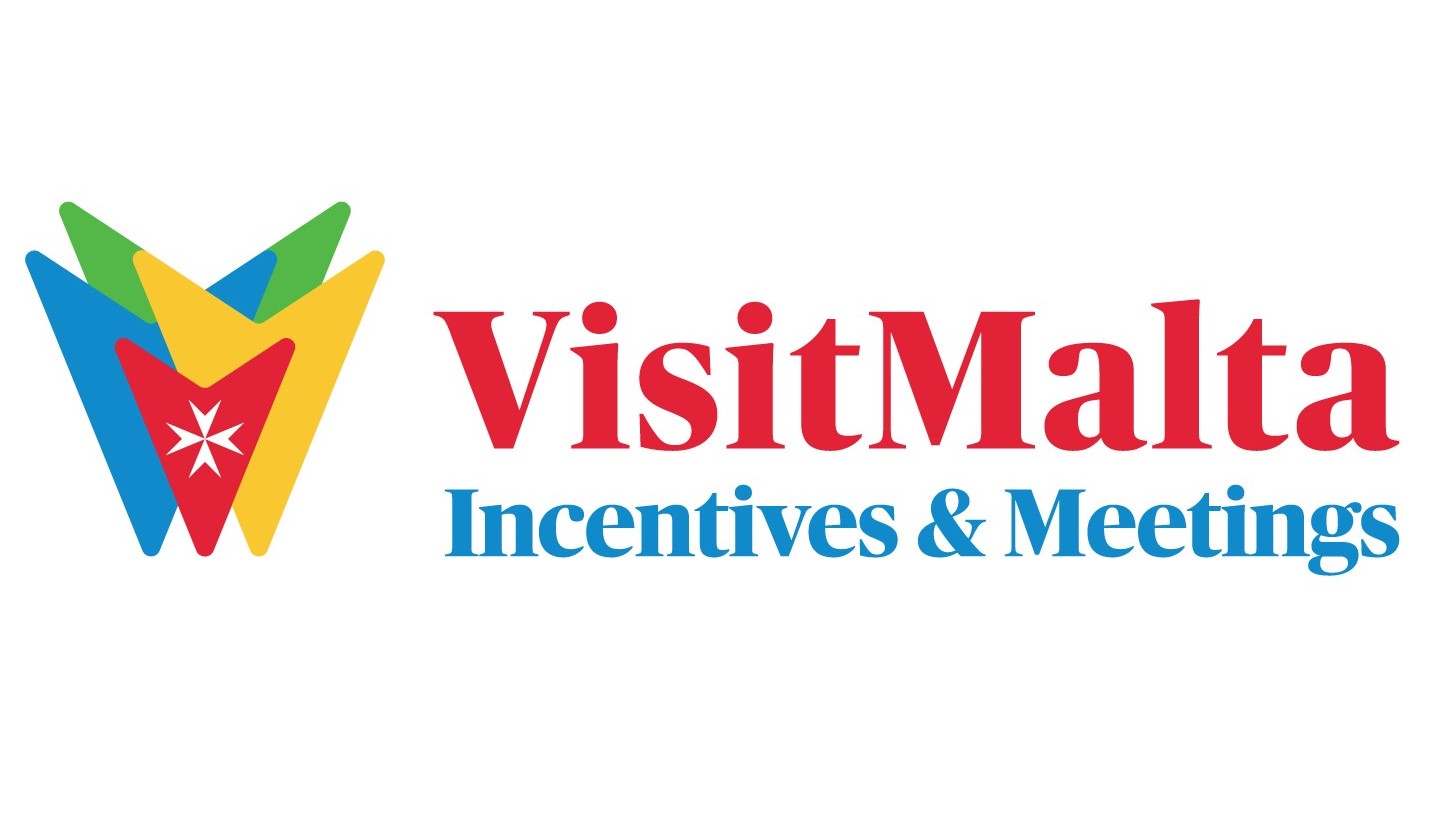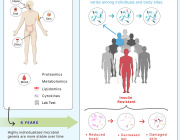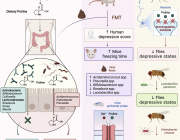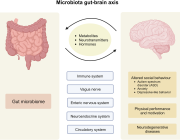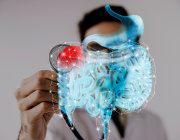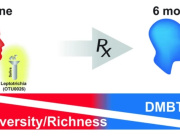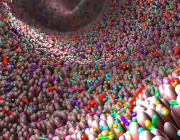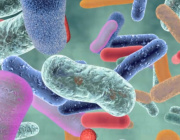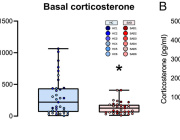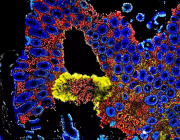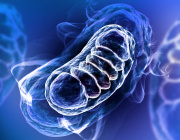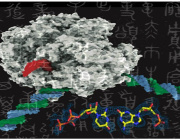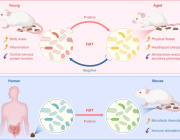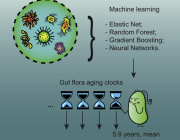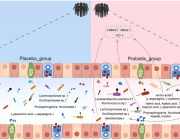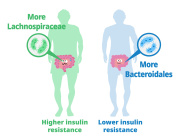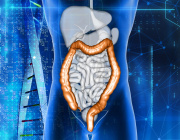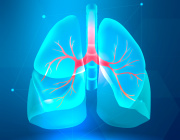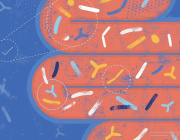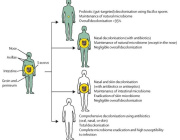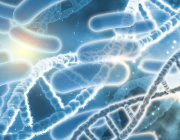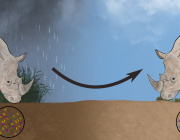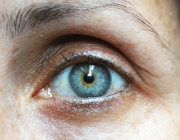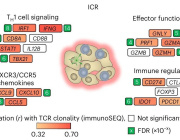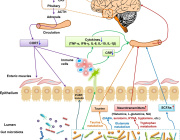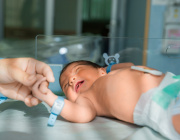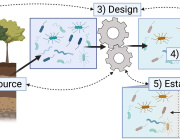Alerts
Program of Targeting Microbiota 2024
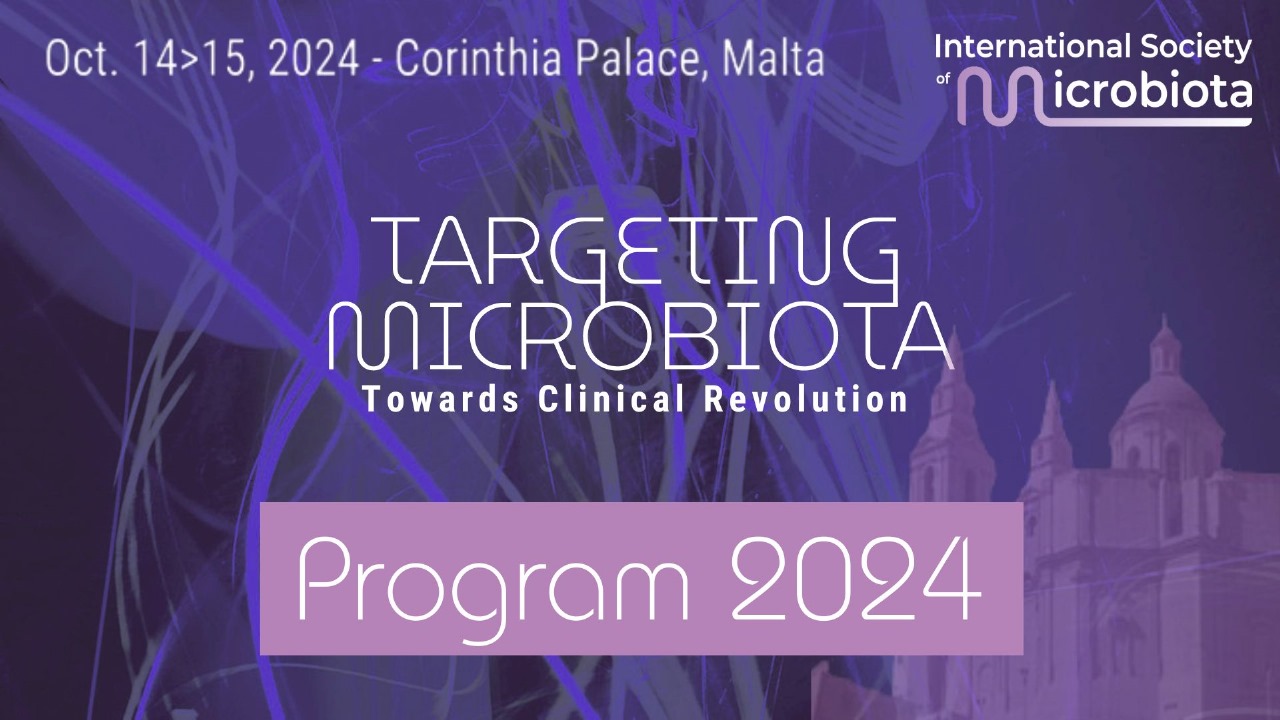
Join the International Society of Microbiota for its 11th World Congress on Targeting Microbiota, on October 14-15 at Corinthia Palace Malta!
Preliminary Program
Day 1 - Monday, October 14, 2024
Key note Speaker:
The Kingdom of Microbiome: Where we are now and where we are heading? Messages & Perspectives
Session 1:
Investigating the Role of Microbiota in Health & Disease: Mechanistic Insights and Recent Developments
Session 2:
Integrating One Health Approach: Environment, Animals and Human Lifestyle Factors in Health Strategy
Day 2 - Tuesday, October 15, 2024
Session 3:
Advancements in Microbiome Medicine: A Multidisciplinary Perspective
a. Fecal Microbiota Transplantation (FMT): Clinical Applications, Regulation and Insights
b. Probiotics in Health & Disease Management: Strain-Specific Efficacy and Challenges
c. Metabolites Analysis: Characterization and Synthetic Approaches for Clinical and Nutritional Research
d. Phage Therapy: Emerging Applications and Challenges
e. Extracellular Vesicles and Exosomes: Where is the Target?
Session 4:
Workshop: Probiotic & Prebiotic Prescribing Practices: Empowering Medical Doctors for Improved Patient Health
How Can We Integrate the Latest Research for Optimal Results?
What Are the Challenges and Opportunities in Current Probiotic Use?
How Can Next-Generation Probiotics Transform Patient Care?
How to select and provide the adequate probiotics to patients in 2024?
This specialized workshop will target medical professionals including cardiologists, neurologists, oncologists and others.
Targeting Microbiota 2024 Awards
We are confident that the 11th Edition of Targeting Microbiota will be an exceptional meeting. We look forward to meeting you all in sunny Malta!
On behalf of the ISM Scientific Board
Gut Microbiome, Obesity and Diabetes
 Prof. Hiroshi Ohno, RIKEN Center for Integrative Medical Sciences, Japan, will join Targeting Microbiota 2024 this October to give a presentation on his latest research: "Gut Microbiome, Obesity and Diabetes".
Prof. Hiroshi Ohno, RIKEN Center for Integrative Medical Sciences, Japan, will join Targeting Microbiota 2024 this October to give a presentation on his latest research: "Gut Microbiome, Obesity and Diabetes".
About Prof. Ohno
Hiroshi Ohno is the team leader at RIKEN Center for Integrative Medical Sciences Laboratory for Intestinal Ecosystem. His group is interested in the intestinal immune system, especially the molecular mechanisms of the function and differentiation of M cells, a subset of intestinal epithelium specialized for uptake of particulate antigens such as bacteria and viruses. We are also studying the role of host-gut microbiota interaction on the host physiology and pathology.
Targeting Microbiota 2024 Speakers Line-up.
International Society of Microbiota
Targeting Microbiota 2024 Conference
October 14-15, 2024 - Malta
Press Releases | Newsletters Archive | LinkedIn
Gut Brain Axis & Depression: Startegic Role of Dietary Proline Exposed
 The ISM is pleased to welcome Prof. José Manuel Fernández-Real, Universitat de Girona, Spain join Targeting Microbiota 2024 this October.
The ISM is pleased to welcome Prof. José Manuel Fernández-Real, Universitat de Girona, Spain join Targeting Microbiota 2024 this October.
Prof. Fernández-Real will present a talk on "Gut Brain Axis & Depression: Startegic Role of Dietary Proline Exposed".
Key Points:
High proline consumption emerged as the primary dietary factor significantly impacting depression. Analysis of whole-brain dynamics unveiled disruptions in the rich club network, correlating with depression and circulating proline levels.
Notably, proline supplementation in mice exacerbated depressive symptoms, concomitant with microbial translocation. Human microbiota transplantation in mice induced an emotionally impaired phenotype, accompanied by alterations in GABA-, proline-, and extracellular matrix-related genes in the prefrontal cortex.
Furthermore, interventions such as RNAi-mediated knockdown of proline and GABA transporters in Drosophila, and mono-association with L. plantarum, a prolific GABA producer, demonstrated protective effects against depression-like states.
These findings underscore the potential of microbiome modulation and dietary proline targeting as promising avenues for effective depression treatment.
About José Manuel Fernández-Real
Dr. José Manuel Fernández-Real, an endocrinologist and researcher at the Girona Biomedical Research Institute, holds degrees in Medicine and a Ph.D. from the University of Barcelona, Spain. As a member of the CIBERobn Steering Committee, focusing on Obesity Research, he has contributed significantly to the field with over 500 publications, earning an impressive H index of 97 and over 37,500 citations on Google Scholar. Leading 29 National and International Projects, holding 12 patents, and supervising 14 doctoral theses, he has played pivotal roles in various research endeavors, including coordinating the European ThinkGut project. Renowned globally, he ranks among the top 40 most cited authors in Endocrinology and within the top 1% across all scientific disciplines. Over the past 5 years, his research has primarily explored the microbiota's role in metabolic disorders and cognition, with notable findings linking microbiome signatures to conditions like fatty liver and obesity-related cognitive issues. His latest work focuses on how alterations in proline metabolism impact depression through changes in the gut microbiome.
Targeting Microbiota 2024 Speakers Line-up.
International Society of Microbiota
Targeting Microbiota 2024 Conference
October 14-15, 2024 - Malta
Press Releases | Newsletters Archive | LinkedIn
Human Microbiome Myths and Misconceptions
 Prof. Alan Walker, University of Aberdeen, United Kindgom, will join Targeting Microbiota 2024 this October to give a presentation on his latest research: "Human Microbiome Myths and Misconceptions".
Prof. Alan Walker, University of Aberdeen, United Kindgom, will join Targeting Microbiota 2024 this October to give a presentation on his latest research: "Human Microbiome Myths and Misconceptions".
About Prof. Walker
Prof. Walker is a microbiologist by training with specific research interests in the bacteria that inhabit the gastrointestinal tract of mammalian hosts. After receiving an undergraduate degree in Microbiology from the University of Aberdeen Prof. Walker studied for my PhD at the Rowett Institute and at the University of Dundee, specialising in gut microbiology and the role that intestinal bacteria play in the breakdown of dietary fibre. I then spent eight and a half years at the Wellcome Sanger Institute in Cambridge, a renowned centre for genomics research. While there he used state of the art DNA sequencing facilities to better characterise host-associated microbial communities and shed light on the roles these microbes play both in health and in diseases such Cystic Fibrosis, inflammatory bowel disease and infection with Salmonella spp. and Clostridium difficile. Prof. Walker is now a Senior Research Fellow/Principal Investigator at the Rowett Institute within the University of Aberdeen. In his lab he combines anaerobic microbiology with DNA sequencing technologies in order to examine interactions between host diet and the intestinal microbiota of humans and animals, and how these factors may contribute to host health.
Targeting Microbiota 2024 Speakers Line-up.
International Society of Microbiota
Targeting Microbiota 2024 Conference
October 14-15, 2024 - Malta
Press Releases | Newsletters Archive | LinkedIn
Microbial Phenotypes in Obesity: Implications for Precision Nutrition
 The ISM is pleased to welcome Prof. Ellen Blaak, Maastricht University, Netherlands join Targeting Microbiota 2024 this October.
The ISM is pleased to welcome Prof. Ellen Blaak, Maastricht University, Netherlands join Targeting Microbiota 2024 this October.
Prof. Blaak will participate in the session on "Microbial Phenotypes in Obesity: Implications for Precision Nutrition", highlight the strategies to modulate microbiota in obesity.
About Ellen Blaak
Ellen Blaak is Professor in Human Biology at the Department of Human Biology since 2007 and is Chair of the Department of Human Biology. Her research focuses on the role of disturbances in fatty acid metabolism and interorgan cross-talk (gut-adipose tissue-muscle metabolism) in the aetiology of obesity and type 2 diabetes mellitus (>300 publ,) as well as the impact of nutritional or lifestyle intervention to reverse these changes. Beside being professor at Maastricht University, she is project leader within the Top Institute Food and Nutrition, a public-private partnership of academia and international Food Industry, focussed on precompetitive research. She is member of the Nutrition committee of the Dutch Health Council and of several advisory board/grant evaluation committees. She obtained funding from among others the Netherlands Organisation for Scientific research/Dutch Diabetes Research Foundation/EU as a PI for more than 30 research projects and has supervised more than 30 PhD theses.
Targeting Microbiota 2024 Speakers Line-up.
International Society of Microbiota
Targeting Microbiota 2024 Conference
October 14-15, 2024 - Malta
Press Releases | Newsletters Archive | LinkedIn
Probiotics & Health: How to Select the Right Strain?
 Prof. Andreas Schwiertz, from the Institute of Microecology and member of the ISM scientific board, Germany, will join Targeting Microbiota 2024 this October to give a presentation on his latest research: "Probiotics & Health: How to Select the Right Strain?".
Prof. Andreas Schwiertz, from the Institute of Microecology and member of the ISM scientific board, Germany, will join Targeting Microbiota 2024 this October to give a presentation on his latest research: "Probiotics & Health: How to Select the Right Strain?".
About Prof. Schwiertz
Dr. Andreas Schwiertz is a microbiologist and molecular biologist. He trained at the Carl von Ossietzky University, Oldenburg (GER), the University College Cork (IRL) and Sate University of St. Petersburg (RUS). He received his PhD from the University of Potsdam (GER), where he trained under Prof. Michael Blaut in human gastrointestinal microbiology and on probiotics. In 2012 he received his lecturer qualification from the Justus Liebig University of Giessen on gastrointestinal microbiology where he is associated professor. In 2003 he joined the Institute of Microecology in Herborn, where he serves currently as CEO and CSO.
Targeting Microbiota 2024 Speakers Line-up.
International Society of Microbiota
Targeting Microbiota 2024 Conference
October 14-15, 2024 - Malta
Press Releases | Newsletters Archive | LinkedIn
Gut Bacteria and Heart Healing: The Hidden Players in Post-Infarction Resilience
 Prof. Patrick C. H. Hsieh, Academia Sinica, Tawian, will join Targeting Microbiota 2024 this October to give a presentation on his latest research: "Gut Bacteria and Heart Healing: The Hidden Players in Post-Infarction Resilience".
Prof. Patrick C. H. Hsieh, Academia Sinica, Tawian, will join Targeting Microbiota 2024 this October to give a presentation on his latest research: "Gut Bacteria and Heart Healing: The Hidden Players in Post-Infarction Resilience".
Key Highlights
1. Gut microbiota influence heart recovery post-heart attack.
2. Microbes affect immune cells and produce essential fatty acids.
3. Butyrate-producers linked to improved cardiac protection.
4. Evidence from human and animal studies supports this link.
5. Potential for therapeutic interventions to enhance heart healing.
6. Interdisciplinary exploration of microbial metabolites and immune dynamics.
Targeting Microbiota 2024 Speakers Line-up.
International Society of Microbiota
Targeting Microbiota 2024 Conference
October 14-15, 2024 - Malta
Press Releases | Newsletters Archive | LinkedIn
Revolutionizing Depression Treatment: The Critical Role of Dietary Proline Exposed

A recent study has identified the microbiota-gut-brain axis as a promising area for the treatment of depression, which currently suffers from low efficacy rates. The research aimed to address current gaps in understanding, as most studies are underpowered and focus narrowly on major depression without considering the microbiome's functionality, composition, or external influences.
To tackle these challenges, the researchers utilized a multi-omics approach, integrating multiple types of biological data from pre-clinical models and three human cohorts with mild depression. The key findings revealed connections between depression and microbial metabolism affecting glutamate/GABA pathways, with a particular emphasis on the amino acid proline.
High dietary intake of proline emerged as the most significant dietary influence on depression. Furthermore, depression and high circulating proline levels were linked to disruptions in the brain's rich club network, which is responsible for integrating information from different brain regions.
In mice, proline supplementation led to worsened depressive symptoms and microbial translocation. Additionally, human microbiota transplantation in mice resulted in depressive behaviors and changes in genes related to GABA, proline, and the extracascular matrix in the prefrontal cortex.
Genetic and microbial interventions in Drosophila (fruit flies) offered further insights. Knockdown of proline and GABA transporters, along with mono-association with L. plantarum (a high GABA producer), provided protection against depressive states.
These findings suggest that targeting microbiome dynamics and dietary proline intake could lead to more effective depression treatments. The study highlights the importance of considering the complex interplay between the gut microbiota, diet, and brain function in the development and treatment of depression. Future research may build upon these findings to develop novel therapeutic strategies for depression and other mood disorders.
Stay updated on the latest advances on microbiome and depression during Targeting Microbiota 2024 this October. Submit a related abstract.
Copyright: International Society of Microbiota
Gut-Brain Connection: Key Insights into Neurodegenerative Diseases
The human gastrointestinal tract plays host to a rich ecosystem of microbes, collectively known as the gut microbiome. Recent advancements in sequencing technologies have deepened our understanding of the pivotal role this microbial community plays in human biology. From health maintenance to disease development, the gut microbiome's influence spans across various facets of human health.
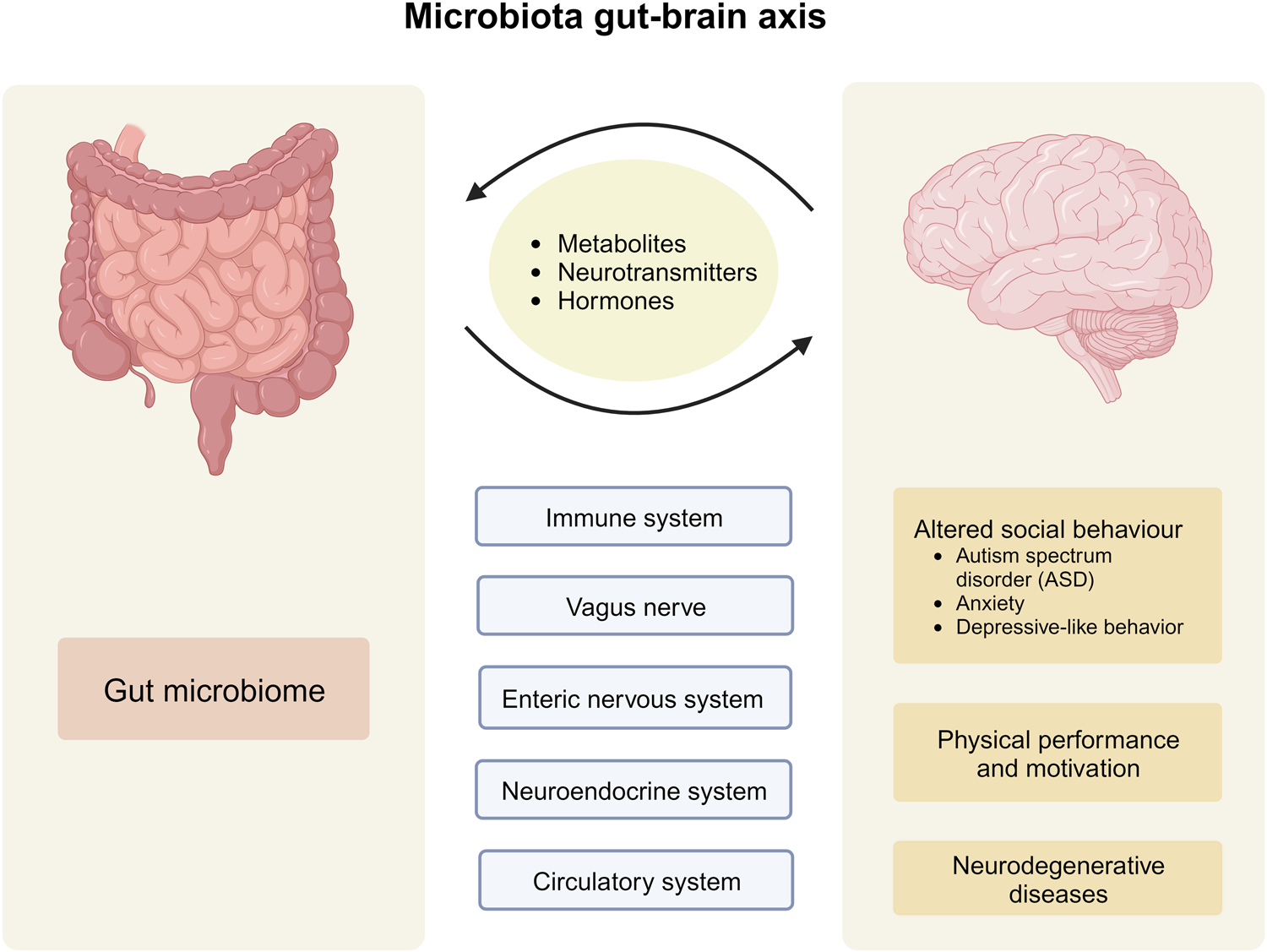
The microbiota–gut–brain axis. The bidirectional communication between the gut microbiome and the brain is mediated by the immune system, vagus nerve, enteric nervous system, neuroendocrine system, and circulatory system. Alterations in gut microbiota have been linked to the development of autism spectrum disorders, anxiety, depressive-like behavior, impaired physical performance, and motivation, as well as neurodegenerative diseases. This figure was created with BioRender (https://biorender.com/). Credits: Jian Sheng Loh et al., 2024.
In a recent review published in the Signal Transduction and Targeted Therapy Journal, researchers delve into the intricate relationship between the gut microbiome and the central nervous system, termed the "microbiota-gut-brain axis". This bidirectional communication pathway has emerged as a crucial regulator of glial functions, offering promising avenues for mitigating the onset and progression of neurodegenerative diseases.
The review meticulously explores the mechanisms underlying the microbiota-gut-brain axis in neurodegenerative diseases. It elucidates how the gut microbiota communicates with key glial cells — microglia, astrocytes, and oligodendrocytes — during both healthy states and neurodegenerative conditions. Employing a metabolite-centric approach, the paper highlights the role of microbial metabolites, neurotransmitters, and gut hormones in modulating glial function and neurodegeneration.
Furthermore, the review investigates potential therapeutic targets along the microbiota-gut-brain axis, including the intestinal barrier, blood-brain barrier, meninges, and peripheral immune system. By addressing glial dysfunction at these interfaces, researchers aim to disrupt the pathological cascade associated with neurodegenerative diseases.
The paper wraps up by evaluating the preclinical and clinical evidence surrounding interventions targeting the gut microbiome, such as probiotics, prebiotics, and fecal microbiota transplantation, in the context of neurodegenerative diseases. A comprehensive understanding of the microbiota-gut-brain axis promises to catalyze the development of innovative therapeutic strategies for combating neurodegeneration, offering hope for millions affected by these debilitating conditions.
Targeting Microbiota 2024 will highlight the latest advancements in microbiota-gut-brain axis. Don't miss the chance to join the 11th ISM World Congress on October 14-15, 2024 at Corinthia Palace Malta!
Copyright: International Society of Microbiota
Fusobacterium nucleatum: A Key to Unlocking Colorectal Cancer Insights
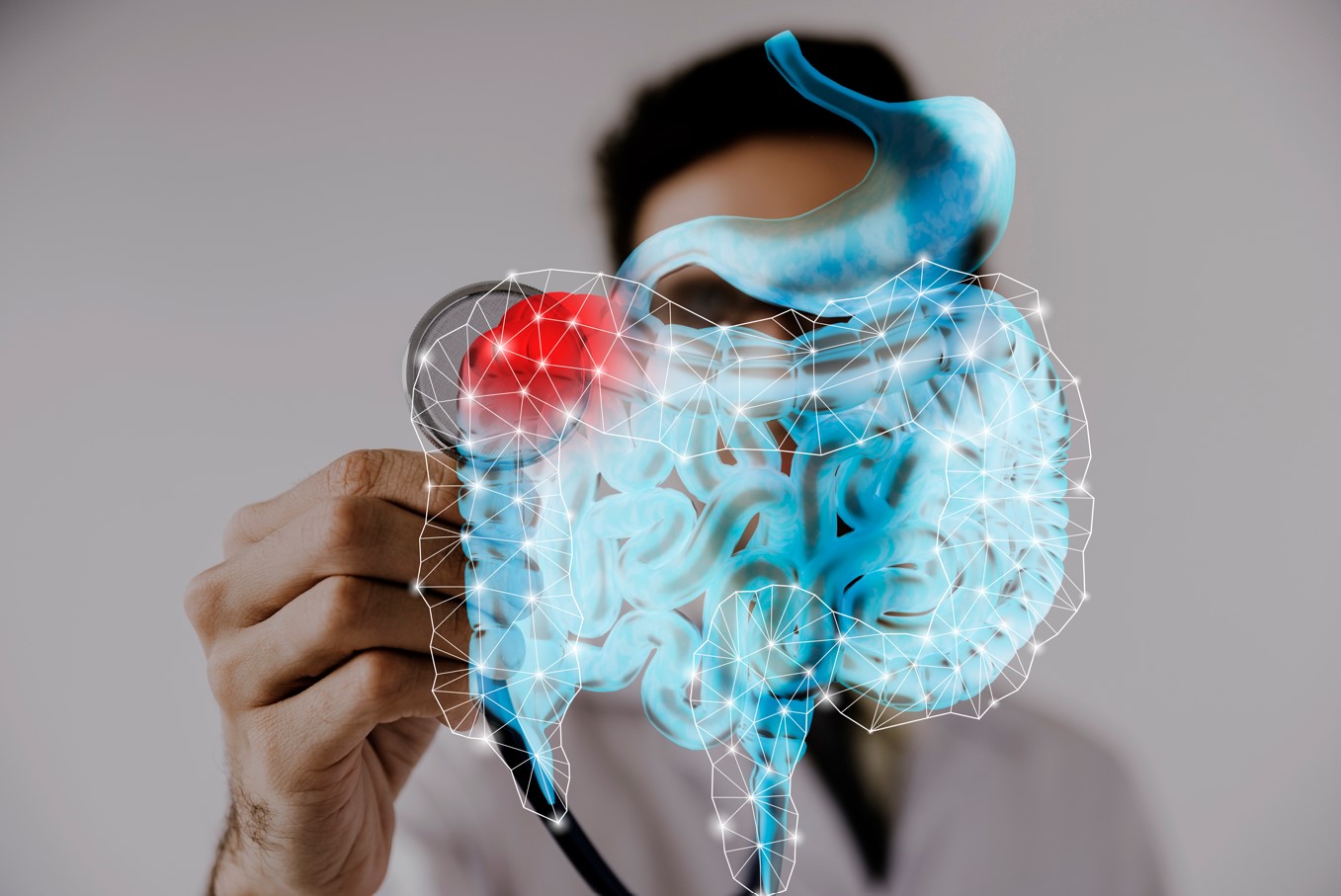
A recent review by researchers from California Institute of Behavioral Neurosciences & Psychology meticulously evaluates the influence of gut microbiota on the development and progression of colorectal cancer (CRC), a significant global health concern. Adhering to the PRISMA 2020 guidelines, a thorough database search was conducted, yielding 20 articles that met the inclusion criteria from 2000 to 2023.
Identifying Promising Microbiota Markers for Early Diagnosis and Treatment Enhancement
The review highlights the identification of specific microbiota markers, notably Fusobacterium nucleatum, which hold promise for early diagnosis and enhancing treatment of CRC. The synthesis of results underscores a significant correlation between gut and oral microbiota dysbiosis and CRC, suggesting that microbial markers could serve as cost-effective, noninvasive tools for early detection, monitoring recurrence, and evaluating treatment responses.
Addressing Challenges and Calling for Methodological Standardization
However, challenges such as establishing a cause-and-effect relationship, variability in study methodologies, and unaccounted variables like diet and lifestyle present limitations to the current understanding. The review calls for the standardization of microbiota research methodologies to allow for comparable findings across studies and suggests that future research should focus on large-scale multicenter longitudinal studies to validate specific biomarkers for developing universal diagnostic tools.
Exploring Novel Strategies for Prevention and Treatment
Additionally, exploring how microbiota influences CRC pathogenesis could lead to novel prevention and treatment strategies. Despite the low level of study overlap indicating a broad range of unique primary studies and reducing the risk of citation bias, the review acknowledges the need for a deeper understanding of the cause-and-effect relationship between gut microbiota and CRC.
In conclusion, leveraging microbiota markers for CRC could revolutionize early detection and monitoring, but further research is necessary to overcome current challenges and fully harness the potential of microbiome-centered treatments and preventive methods.
Targeting Microbiota 2024 will highlight the latest advancements in microbiome research and different diseases. Don't miss the chance to join the 11th ISM World Congress on October 14-15, 2024 at Corinthia Palace Malta!
Copyright: International Society of Microbiota
Image Credits: Freepik
Prof. Maria Cecilia Giron Appointed President of ISM, Pioneering Microbiota Research
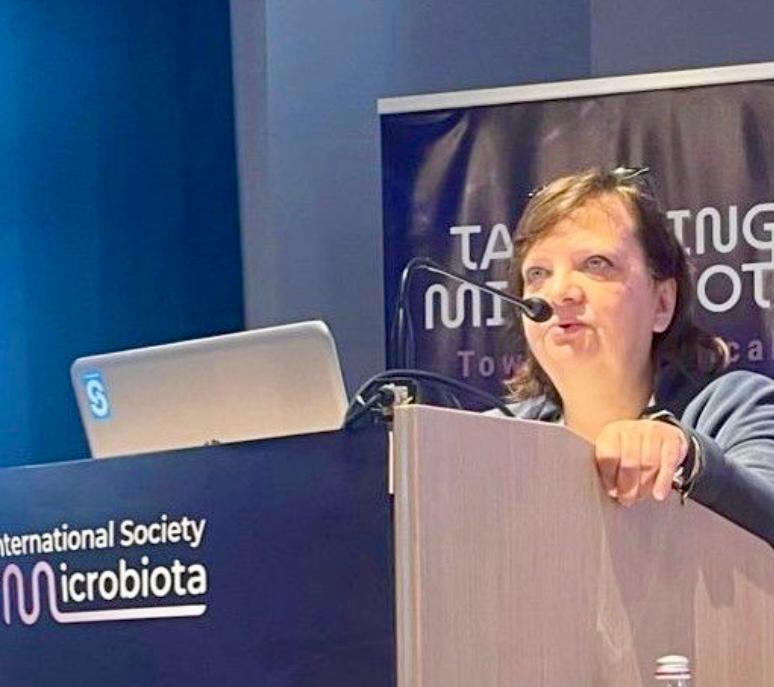
The scientific Board announce the appointment of Prof. Maria Cecilia Giron as the President of the International Society of Microbiota (ISM). This appointment marks a significant milestone in her illustrious career and promises to be a turning point in the field of microbiota research.
Dr. Giron has an extensive and impressive background in the field of pharmacology and clinical studies. Her invaluable contributions are evident through her roles in various prestigious committees, including the Ethics Committee for Clinical Studies at Padova University Hospital, the Ethics Committee for Oncological Clinical Trials at the Veneto Institute of Oncology, and the Veneto Region Medicines Evaluation Committee.
A true pioneer in her field, Dr. Giron's research has been instrumental in shedding light on the intricate relationship between gut microbiota and intestinal function in both normal and pathological conditions. Her dedication to advancing our understanding of microbiota's role in human health is underscored by her impressive portfolio of over 60 peer-reviewed publications.
Under her leadership, we anticipate that ISM will continue to flourish and lead the way in microbiota research, forging new paths and fostering collaboration to uncover the profound implications of microbiota in health and disease. We congratulate Prof. Maria Cecilia Giron on this remarkable achievement and eagerly await the exciting developments she will bring to the forefront of microbiota research.
Recognizing Prof. Lena Öhman's Outstanding Scientific Contribution to Microbiota Research at Targeting Microbiota 2023
Celebrating Prof. Lena Öhman’s Outstanding Scientific Contribution to Microbiota Research at Targeting Microbiota 2023
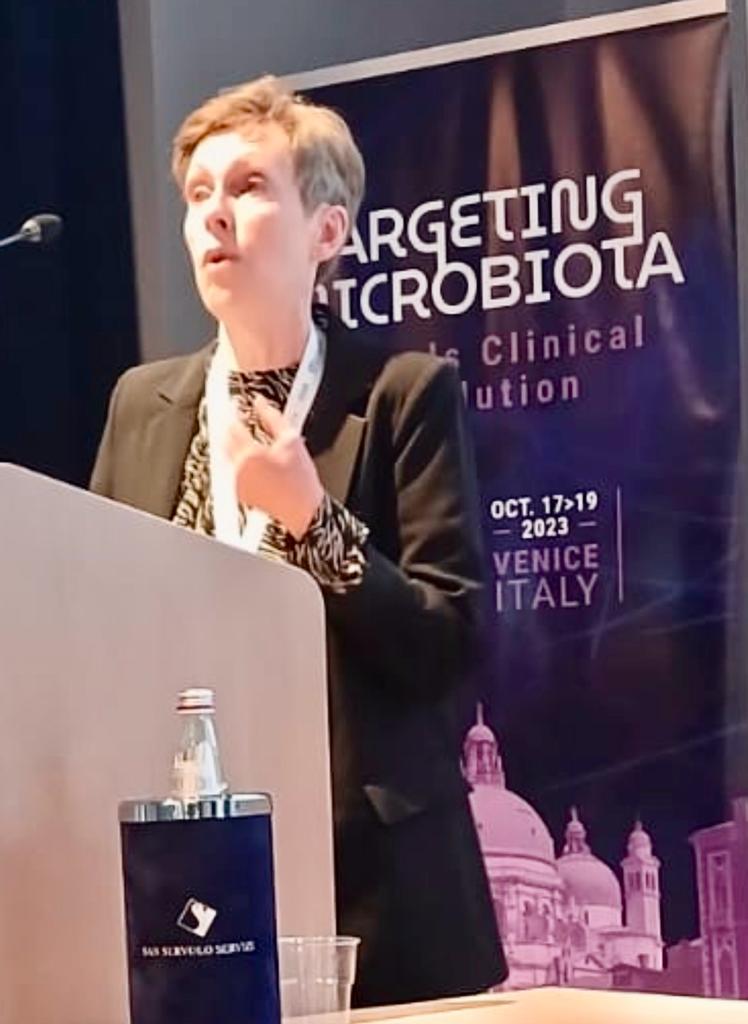 |
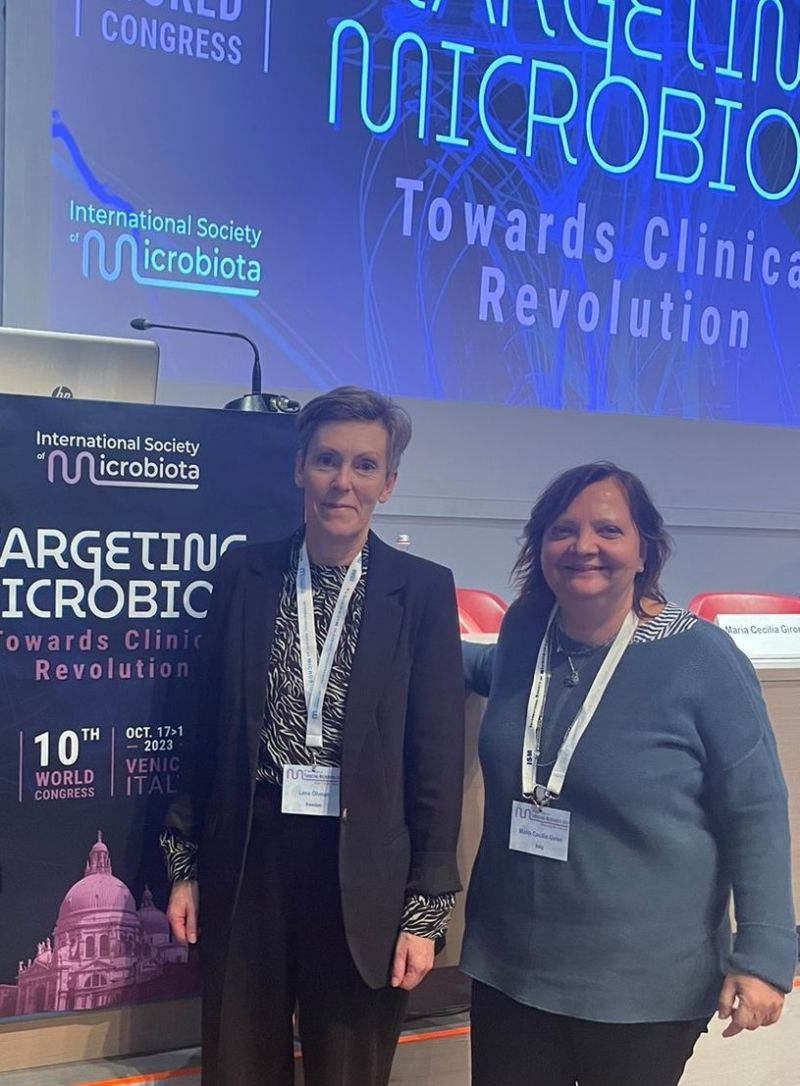 |
We are delighted to celebrate the remarkable scientific contribution of Prof. Lena Öhman from the University of Gothenburg, Sweden, during Targeting Microbiota 2023.
She was awarded the ISM Scientific Contribution 2023.
Prof. Öhman, with a distinguished career spanning from her PhD thesis defense in 2002 to her recent appointment as a full professor in 2020, has made significant strides in the field of microbiota research.
A Pioneering Career
Prof. Öhman’s journey in academia has been nothing short of extraordinary. After completing her doctoral studies, she embarked on a journey that took her to Danone Research and INRAE Île-de-France - Jouy-en-Josas for a research sabbatical in 2012-2013. Her diverse experiences have enriched her perspective, leading to innovative insights in her field.
Unraveling Complexities in Gastrointestinal Disorders
During her captivating presentation at Targeting Microbiota 2023, Prof. Öhman delved deep into the intricate challenges posed by gastrointestinal disorders. Her talk not only explored the nuances of monitoring and diagnosing these diseases but also illuminated the mechanisms that underlie their initiation and persistence. Of particular significance was her examination of the potential of fecal gut microbiota and metabolite signatures as promising biomarkers for gastrointestinal disorders.
Dedicated Research Group
Prof. Öhman’s commitment to advancing our knowledge of gastrointestinal diseases extends beyond the lecture hall. She leads a dynamic research group at the University of Gothenburg, tirelessly working to uncover how gut microbiota and immune activity influence the course of these disorders. Their collective mission is to identify microbiotic and immunological indicators that can guide therapy decisions and improve outcomes for patients.
Prof, Öhman shared with the International Society of Microbiota: "We aim to continue to explore the potential of intestinal microbiota and metabolome as diagnostic biomarkers for inflammatory bowel disease, but also for colitis-associated colon cancer. Furthermore, we aim investigate the underlying principles of how commensal microbiota govern intestinal T cells and B cells in inflammatory bowel disease".
Innovative Approaches
In addition to discussing biomarkers, Prof. Öhman shared insights into the prospective use of in vitro cell culture models as powerful tools for studying the mechanisms of disease. Her comprehensive presentation illuminated the current state of research in this field, inspiring fellow researchers and clinicians alike.
We extend our heartfelt congratulations to Prof. Lena Öhman for her outstanding achievements and dedication to advancing our understanding of gastrointestinal disorders and the role of gut microbiota. Her pioneering contributions in the field are truly commendable, and we eagerly anticipate further advancements in this critical area of research.
Join Us in Celebrating Excellence
We invite you to join us in celebrating the excellence and dedication of Prof. Lena Öhman in the field of microbiota research. Her contributions have undoubtedly paved the way for a deeper understanding of gastrointestinal disorders and hold the promise of improved diagnostics and therapies in the future.
Stay tuned for more groundbreaking insights from leaders in microbiota research at Targeting Microbiota 2023.
Best Poster Award at Targeting Microbiota 2023 Spotlights Innovative Research
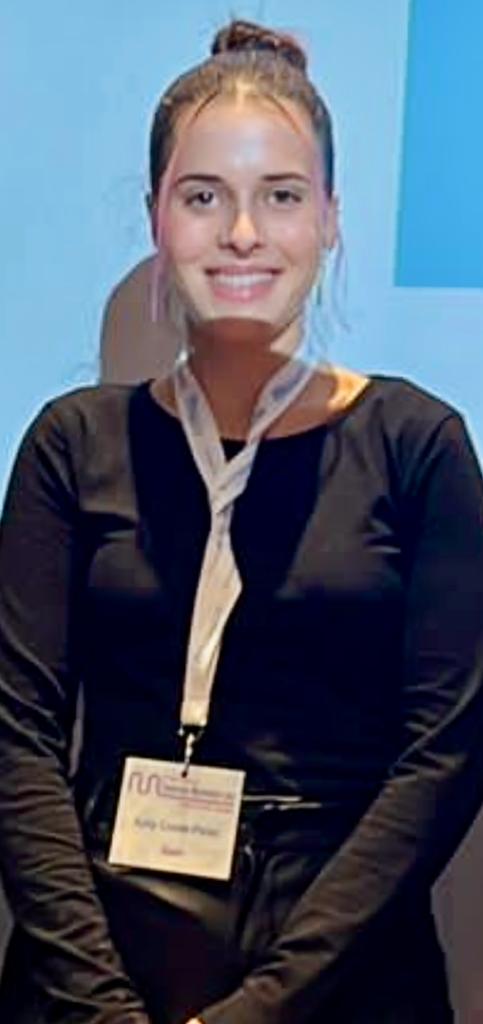
Targeting Microbiota 2023 Best Poster Presentation Award
The International Society of Microbiota (ISM) is delighted to extend its warmest congratulations to Kelly Conde Pérez, from the Universitary Hospital of A Coruña, Spain, for her outstanding poster presentation titled:
“Parvimonas Micra Translocates From Subgingival Pockets to Tumors in Colorectal Cancer Patients."
This remarkable poster presentation has illuminated a potential breakthrough in our understanding of the microbiota's role in colorectal cancer. Kelly's work suggested a fascinating link between the oral pathogen Parvimonas micra and tumors in colorectal cancer patients. The data presented indicated that P. micra not only coexists with other periodontal pathogens but also migrates to the gut, liver, and periodontal pockets. The efficiency of bacterial translocations appears to be enhanced when microorganisms form consortia.
Moreover, RNA-seq analysis provided compelling evidence that oral microbes exhibit increased activity within tumor tissues compared to healthy tissue. This groundbreaking research implies that Parvimonas micra, in conjunction with other pathobionts, may translocate from the oral cavity to the gut. This revelation opens up exciting possibilities, as P. micra could potentially serve as a non-invasive biomarker for colorectal cancer.
Kelly Conde Pérez's work embodies the spirit of innovative microbiota research, and her findings hold immense promise for advancing our understanding of colorectal cancer and its relationship with the microbiome.
The ISM commends Kelly for her exceptional contribution to the field and encourages young investigators to pursue their passion for microbiota research. We are committed to keeping you updated with the latest discoveries and advancements in this dynamic field. Stay engaged and stay tuned for more groundbreaking research!
Outstanding Presentation on Microbiota Manipulation for Cdkl5 Deficiency Disorder Receives Top Honors at Targeting Microbiota 2023
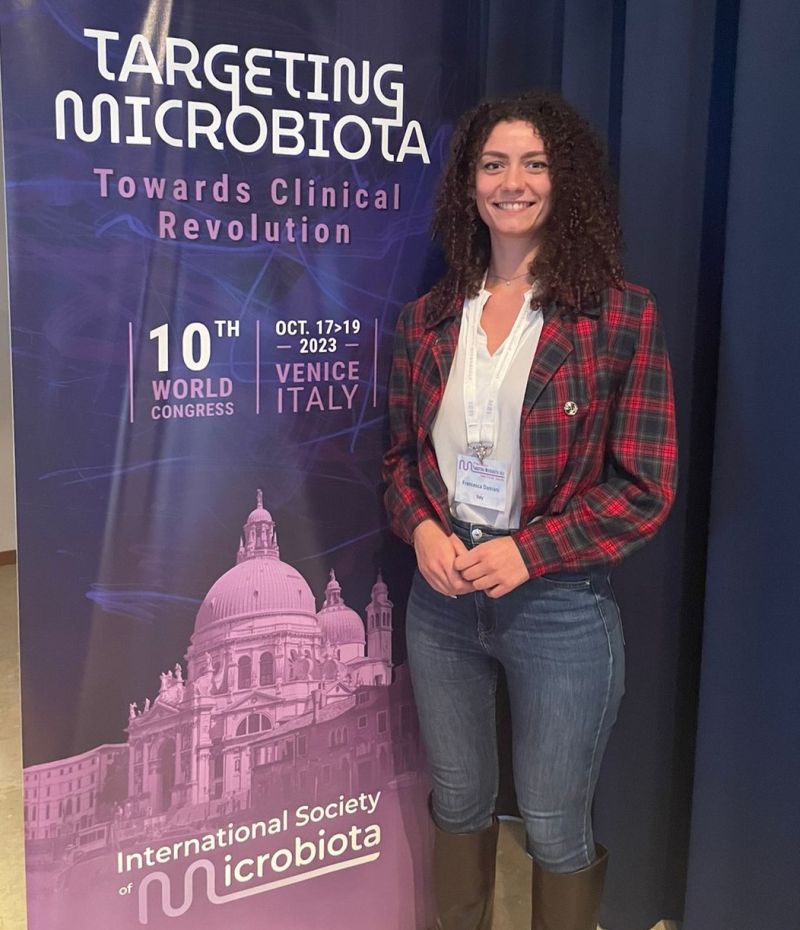
Targeting Microbiota 2023 Best Short Oral Presentation Award
Francesca Damiani, from Scuola Normale Superiore, Italy, has been honored with the prestigious Best Short Oral Presentation award at Targeting Microbiota 2023. Her exceptional talk, titled "Microbiota Manipulation as a Potential Therapeutic Strategy to Improve Clinical Symptoms in CDKL5 Deficiency Disorder," stood out as a groundbreaking contribution to the field.
Cyclin-Dependent Kinase-Like 5 (CDKL5) deficiency disorder (CDD) is a rare X-linked developmental encephalopathy rooted in pathogenic variants of the CDKL5 gene. Beyond the array of neurological symptoms associated with CDD, patients frequently contend with gastrointestinal issues and underlying immune dysregulation as comorbidities. Dr. Damiani's research has shed light on the possible connection between these challenges and disturbances in the intestinal microbiota, specifically the presence of dysbiosis in CDD patients.
In her enlightening presentation, Dr. Damiani unveiled the promising clinical application of microbial manipulation as a non-invasive avenue to alleviate symptoms in individuals affected by CDD.
Dr. Damiani shared with the Internation Society of Microbiota (ISM) "Our research sheds light on the previously unexplored role of the gut microbiota-brain axis in influencing the behavioral and functional deficits observed in mouse models of CDD. In the future, we aim to elucidate the specific signals and pathways that mediate this connection, potentially offering innovative avenues for microbiota-based interventions in clinical practice. Moreover, to enhance the translational relevance of our findings, we plan to investigate the therapeutic potential of probiotic supplementation in CDD mice. In summary, targeting the intestinal microbiota could serve as a non-invasive alternative strategy to alleviate symptoms in CDD patients, and hopefully, in other neurodevelopmental disorders".
The International Society of Microbiota (ISM) extends its heartfelt congratulations to Dr. Damiani for her exceptional achievement. We eagerly anticipate learning more about her future research endeavors as she continues to make strides in the field of microbiota research.
Domestic Cleaning and Human Microbiome - Is There a Link?
 Prof. Markus Egert from Furtwangen University and active member of the ISM scientific committee, will chair a session on "Environment, Lifestyle & Microbiota: A "One Health" Approach" during Targeting Microbiota 2023.
Prof. Markus Egert from Furtwangen University and active member of the ISM scientific committee, will chair a session on "Environment, Lifestyle & Microbiota: A "One Health" Approach" during Targeting Microbiota 2023.
In industrialized countries, people spend up to 90% of their lifetime indoors. However, potential links between the indoor microbiome, the microbiome of daily used objects, the human microbiome and health and well-being are only poorly understood.
Prof. Egert will present a talk that will summarize current knowledge about how domestic cleaning and hygiene measures, predominantly aiming at the prevention of infectious diseases, might influence and shape the human microbiome and its effects on human health. His talk will conclude with suggestions on what "microbiome-friendly" household hygiene could look like.
Prof. Egert's talk will be titled: "Domestic Cleaning and Human Microbiome - Is There a Link?"
About Prof. Egert
Markus Egert is professor for Microbiology and Hygiene at Furtwangen University of Applied Sciences (Black Forest, Germany). His work aims at a deeper understanding of the structural and functional interactions of microbial communities with humans. He was one of the first researchers to apply the so-called RNA-based stable isotope probing technique (RNA-SIP) to intestinal ecosystem in order to identify prebiotics-degrading bacteria. In addition, he is known for his pioneering work on the microbiome of objects of daily use, such as kitchen sponges, spectacles and washing machines, and the hygienic relevance that goes with it.
Join Targeting Microbiota 2023 to learn more about Prof. Egert's talk.
You can share your related work by submitting your abstract.
Targeting Microbiota 2023 Congress
October 17-19, 2023 - Venice
Linkedin | Facebook | Website
Mapping the Kitchen Microbiota in Five European Countries
 Dr. Birgitte Moen from Nofima—Norwegian Institute of Food, Fisheries and Aquaculture Research, Norway will join Targeting Microbiota 2023 on October 17-19 to present her latest research "Mapping the Kitchen Microbiota in Five European Countries".
Dr. Birgitte Moen from Nofima—Norwegian Institute of Food, Fisheries and Aquaculture Research, Norway will join Targeting Microbiota 2023 on October 17-19 to present her latest research "Mapping the Kitchen Microbiota in Five European Countries".
Join Targeting Microbiota 2023 to learn more about Dr. Moen's talk.
You can share your related work by submitting your abstract.
Targeting Microbiota 2023 Congress
October 17-19, 2023 - Venice
Linkedin | Facebook | Website
Gut microbiota and prebiotics in Parkinson's disease: The RESISTA-PD Trial
 Prof. Andreas Schwiertz, Institute of Microecology, Germany will present his latest research during Targeting Microbiota 2023 on October 17-19 in a talk titled "Gut microbiota and prebiotics in Parkinson's disease: The RESISTA-PD Trial".
Prof. Andreas Schwiertz, Institute of Microecology, Germany will present his latest research during Targeting Microbiota 2023 on October 17-19 in a talk titled "Gut microbiota and prebiotics in Parkinson's disease: The RESISTA-PD Trial".
The composition of the gut microbiome is linked to multiple diseases, including Parkinson’s disease (PD). Bacteria producing short-chain fatty acids (SCFAs) and fecal SCFA concentrations are reduced in PD. SCFAs exert various beneficial functions in humans. In the interventional, monocentric, open-label clinical trial RESISTA-PD Prof. Schwiertz and his colleagues aimed at altering fecal SCFAs by an 8-week prebiotic intervention with resistant starch (RS).
In the PD + RS group, fecal butyrate concentrations increased significantly, and fecal calprotectin concentrations dropped significantly. Clinically, Prof. Schwiertz and his team observed a reduction in non-motor symptom load in the PD+RS group.
About Prof. Prof. Schwiertz
Dr. Andreas Schwiertz is a microbiologist and molecular biologist. He trained at the Carl von Ossietzky University, Oldenburg (GER), the University College Cork (IRL) and Sate University of St. Petersburg (RUS). He received his PhD from the University of Potsdam (GER), where he trained under Prof. Michael Blaut in human gastrointestinal microbiology and on probiotics. In 2012 he received his lecturer qualification from the Justus Liebig University of Giessen on gastrointestinal microbiology where he is associated professor. In 2003 he joined the Institute of Microecology in Herborn, where he serves currently as CEO and CSO.
Join Targeting Microbiota 2023 to learn more about Prof. Schwiertz's talk. You can learn more about Targeting Microbiota 2023 program here.
Targeting Microbiota 2023 Congress
October 17-19, 2023 - Venice
Linkedin | Facebook | Website
Microbiota, Enteric Nervous and Immune Systems: Barrier Defenses against Foodborne Pathogens Carriage in Poultry
 Dr. Valentina Caputi, United States Department of Agriculture, Agricultural Research Service, USA, will join Targeting Microbiota 2023 on October 17-19 to present her latest research "Microbiota, Enteric Nervous and Immune Systems: Barrier Defenses against Foodborne Pathogens Carriage in Poultry".
Dr. Valentina Caputi, United States Department of Agriculture, Agricultural Research Service, USA, will join Targeting Microbiota 2023 on October 17-19 to present her latest research "Microbiota, Enteric Nervous and Immune Systems: Barrier Defenses against Foodborne Pathogens Carriage in Poultry".
The gastrointestinal tract is the largest body surface in contact with commensal microorganisms (or microbiota) and with pathogens, therefore the intestinal wall possesses a sophisticated system of barriers that protects the host from the translocation of pathogens, their molecular profiles, or environmental toxins in extra-intestinal tissues. The intestinal epithelium provides the first barrier defense against bacterial- or toxins translocation and its function is finely modulated by the immune system. Several studies have explored avian intestinal epithelial barrier alterations following Salmonella or Campylobacter infection. Submucosa and smooth muscle layers are located underneath the intestinal epithelium. These tissues are densely innervated by the enteric nervous system (ENS), a complex network of neurons and glial cells capable of functioning independently from the brain. The ENS is the principal coordinator of gut motility, peristalsis, nutrient absorption, and fluid secretion.
However, recent studies have shown that enteric neuronal populations are responsible for producing proinflammatory cytokines, thus stimulating the intestinal immune cells to release antimicrobial peptides against Salmonella infection in mammals. These results provide evidence of solid neuroimmune interactions in the gut that strengthen the canonical epithelial barrier against pathogenic infections such as Salmonella. The role of enteric neuroimmune interactions in chicken broilers affected by Salmonella or other foodborne pathogens has not been explored yet, and this research will provide a novel approach to understanding foodborne pathogens infection in poultry and ultimately formulate antibiotic alternatives aimed at preserving the integrity and function of the intestinal neuroimmune barriers.
Join Targeting Microbiota 2023 to learn more about Dr. Caputi's talk.
You can share your related work by submitting your abstract.
Targeting Microbiota 2023 Congress
October 17-19, 2023 - Venice
Linkedin | Facebook | Website
Skin Microbial Changes during Space Flights
 Dr. Pamela Tozzo from the University of Padova, Italy will join Targeting Microbiota 2023 on October 17-19 to present her latest research "Skin Microbial Changes during Space Flights".
Dr. Pamela Tozzo from the University of Padova, Italy will join Targeting Microbiota 2023 on October 17-19 to present her latest research "Skin Microbial Changes during Space Flights".
Join Targeting Microbiota 2023 to learn more about Dr. Tozzo's talk.
You can share your related work by submitting your abstract.
Targeting Microbiota 2023 Congress
October 17-19, 2023 - Venice
Linkedin | Facebook | Website
Microbiota & Myelinazation: The Latest Findings
 Prof. Maria Cecilia Giron, local organizer of Targeting Microbiota 2023, University of Padova, Italy will join the conference and will give a presentation entitled "Microbiota & Myelinazation: The Latest Findings".
Prof. Maria Cecilia Giron, local organizer of Targeting Microbiota 2023, University of Padova, Italy will join the conference and will give a presentation entitled "Microbiota & Myelinazation: The Latest Findings".
Join us in Targeting Microbiota 2023 and benefit from the experience of Prof. Giron. Don't forget that you can share your related work by submitting your abstract.
Targeting Microbiota 2023 Congress
October 17-19, 2023 - Venice
Linkedin | Facebook | Website
Microbiota, Prophages & Phage Therapy: The Missing Link
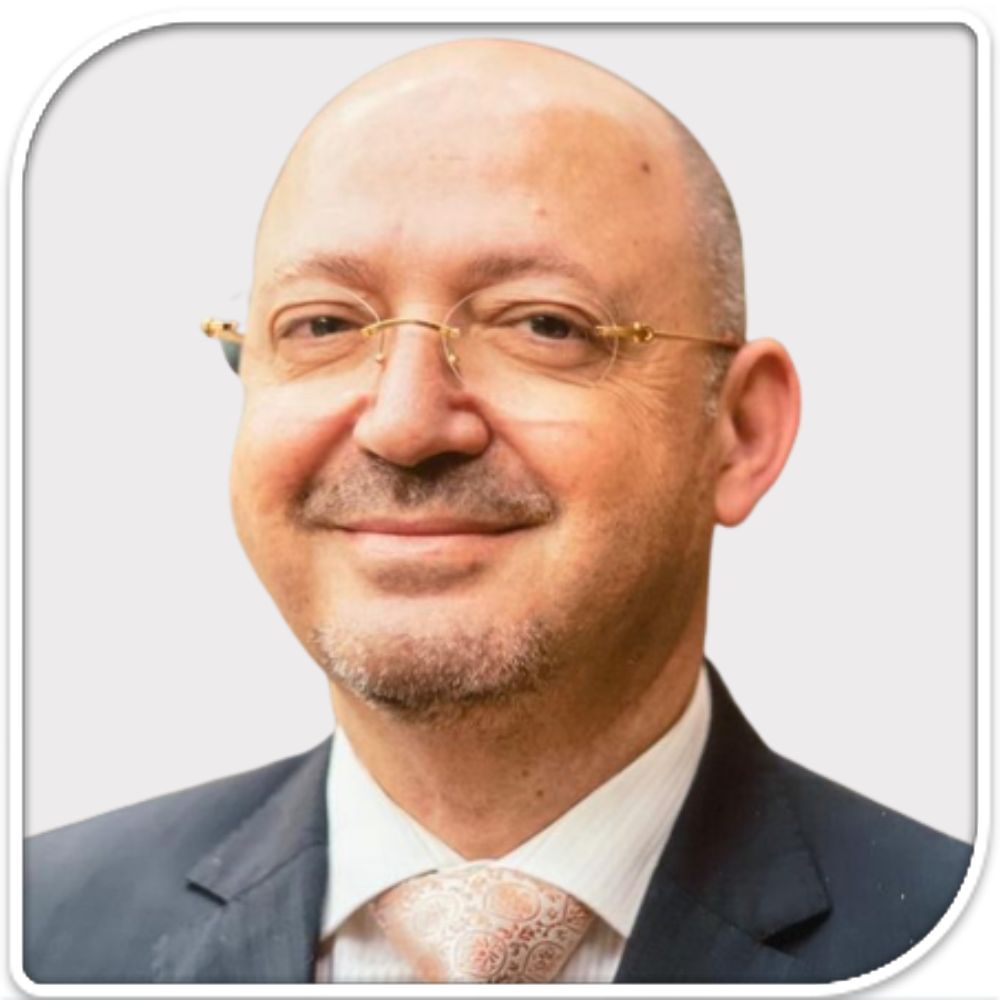 Prof. Marvin Edeas Founder & Chairman of ISM's Committee, Institut Cochin, INSERM, Université de Paris, France will join Targeting Microbiota 2023 on October 17-19 to present a talk entitled "Microbiota, Prophages & Phage Therapy: The Missing Link".
Prof. Marvin Edeas Founder & Chairman of ISM's Committee, Institut Cochin, INSERM, Université de Paris, France will join Targeting Microbiota 2023 on October 17-19 to present a talk entitled "Microbiota, Prophages & Phage Therapy: The Missing Link".
Join Targeting Microbiota 2023 to learn more about Prof. Edeas's talk.
You can share your related work by submitting your abstract.
Targeting Microbiota 2023 Congress
October 17-19, 2023 - Venice
Linkedin | Facebook | Website
More Articles...
- COVID 19 and Microbiota - A Story with a Long Tail
- Computational Modeling Microbial Community Networks: Pros and Cons
- Marine Heatwaves and Microbiome in the Mediterranean Sea: Insights From Non Model Organism Manila Clam
- Evaluation of Transitional Changes Shaping the Infants’ Gut Microbiota in Early Life: The CI.EMME Study






